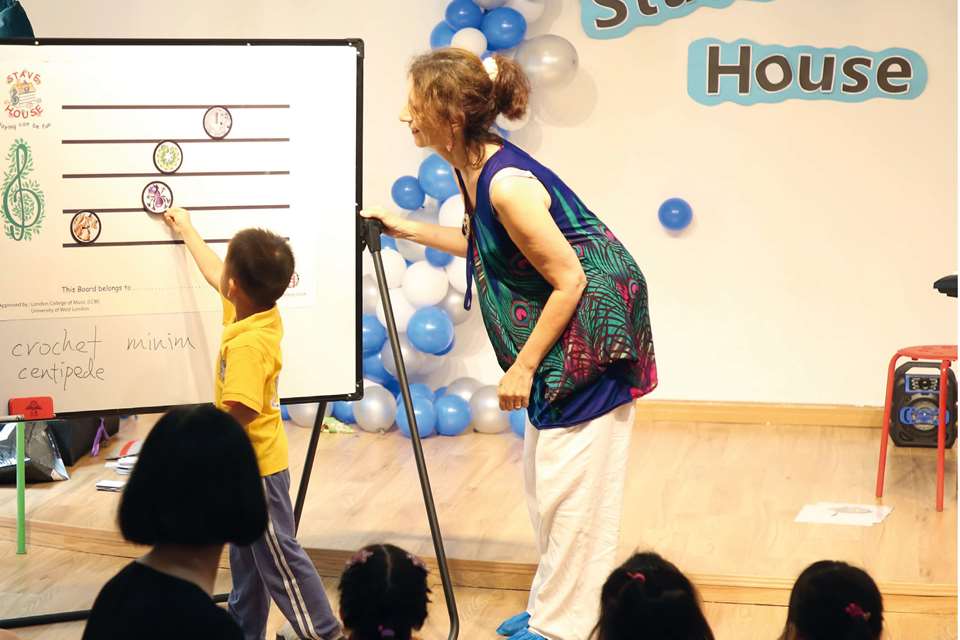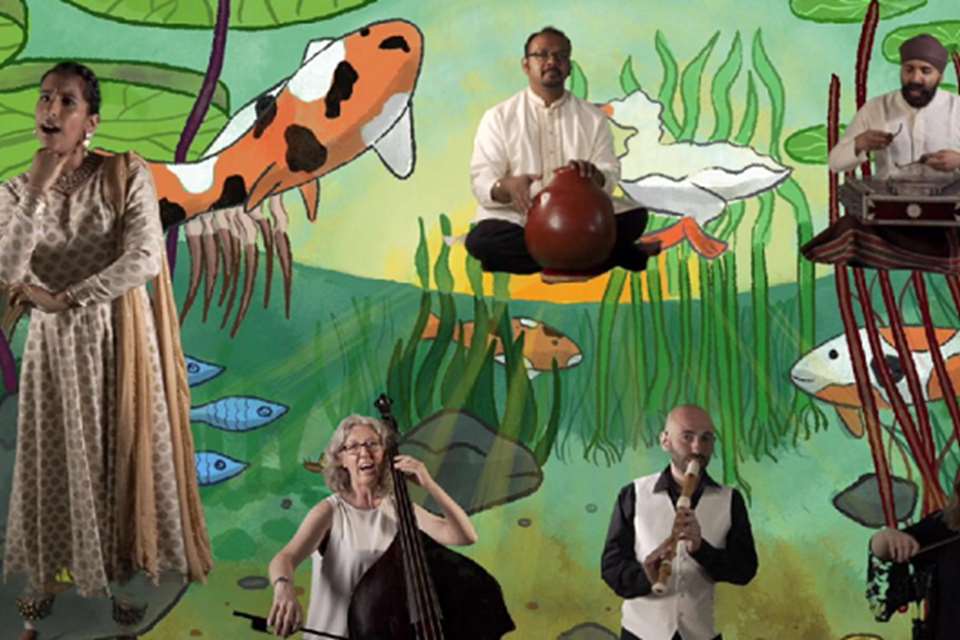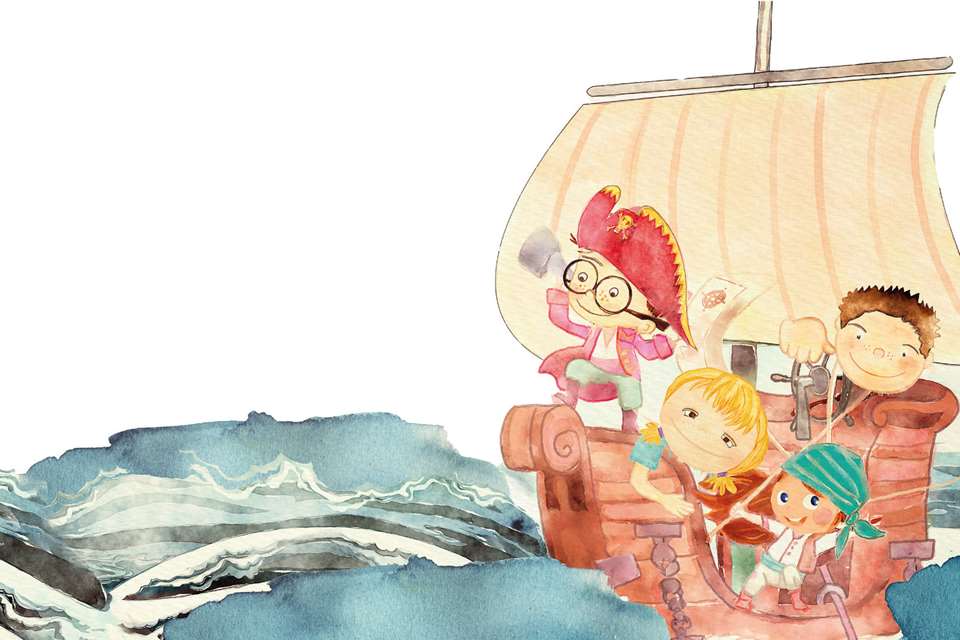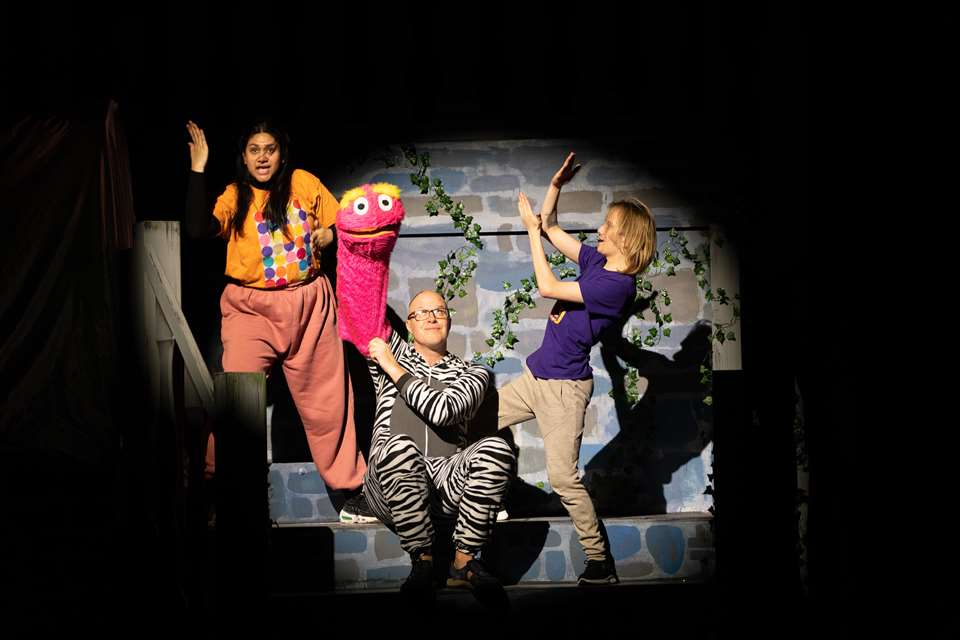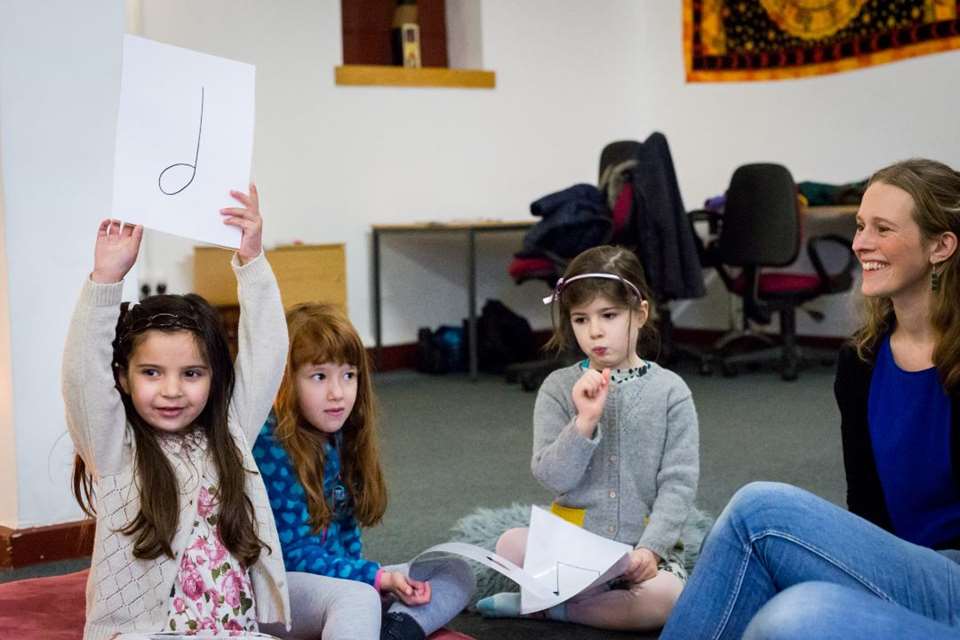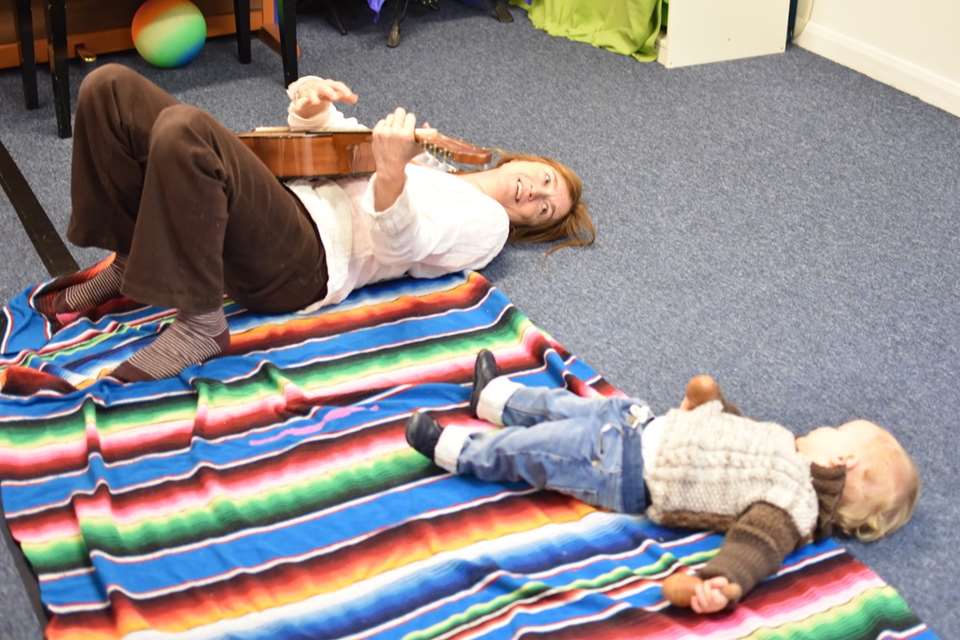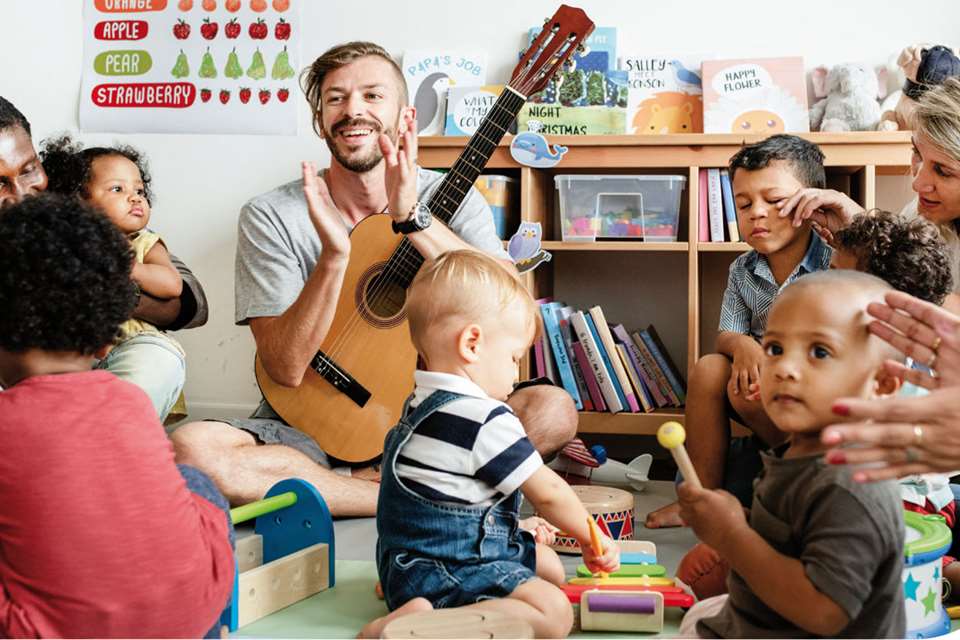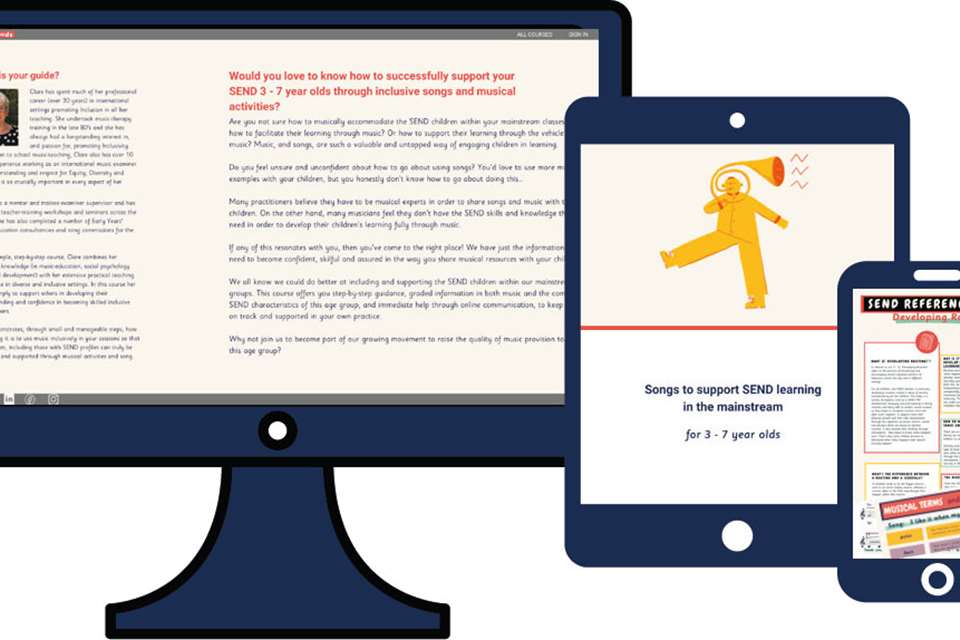Improving access to early years music education: Movers and shakers
Ellie Rashid
Thursday, December 1, 2022
In conversation with Bethan Scolding from Greenwich Music School, Ellie Rashid explores how improving access to early years music education can be addressed

Andreas Greiger
ER: Can you tell me about your early years music education journey and where it started?
BS: My partner Ed and I founded Greenwich Music School back in 2016. I'm a pianist and he is a composer. The founding principles of the school were to focus on access and quality and there was no question that early years was going to be a part of that from the beginning. That's where our journey started. Prior to that, I'd been teaching early years for about five or six years.
ER: Musical Beginnings is a wonderful early years project supported by Youth Music and was a finalist in the Excellence in Primary/Early Years category at the Music & Drama Education Awards 2022. What is the Musical Beginnings project?
BS: In our Musical Beginnings project, we led parent and baby sessions for nought- to one-year-olds, and provided ukulele lessons, training and mentoring for children's centre and nursery staff. We also created and distributed a specially written song booklet for new parents, with accompanying online videos and a free shaker, to reach families isolated by the pandemic. It follows a partnership model which is absolutely key to access in that we are using those connections to make sure we're reaching out to families. We make sure we've got professional early years practitioners to work with us and alongside us. In doing this, we hope to be embedded in those core services that families can reach and enjoy.
Focusing on access and partnership has shaped our sessions because it has enabled us to reach and work with the people who connect with each individual baby. Listening has also been a huge part of the project – listening to parents in the sessions, talking to them, finding out, making sure there's always a conversation about how their babies are making music at home and what they might have observed, from splashing in the bath to scratching with their nails, exploring vocal sounds and echoes. We're always listening, and this is how we build things into our activities and songs.
 © Charlie Matters GEYM
© Charlie Matters GEYM
ER: Listening and paying attention to what is happening at home is key. According to CLA's (Cultural Learning Alliance) recent briefing paper, evidence shows the significance of arts activities at home and in early years settings. Bringing music from the home is also a great way to keep sessions accessible and increases the potential for rich cultural sharing. How else do you take music from the home into sessions?
BS: We ask the families what they listen to as adults. These are often the sounds that children experience around them. These form a playlist that we use for movement and background music.
Our focus has been on day-to-day music making and how we can offer lots of variety and options to include music at home into routines. Whenever we sing a song, we're always changing the words and structure to reflect the needs of the group, whether it's a nappy changing song, a song for getting in and out of the car seat, soothing and so on. So, we're listening to what their routines are and what they need for that routine, then collectively coming up with different ideas.
Another aspect of access we've been thinking about is listening and making sure we're not parachuting our idea of what a good music education is. Children are born musical. They're playing, making sounds, exploring music and parents are communicating with them musically all the time. We can contribute to that but only if we listen and pay attention to what is happening at home.
ER: What makes a space accessible and how do you achieve this?
BS: If you're not in a place where a family normally goes, feels comfortable going or feels at home, you might have another step to take. We go out as much as we can. We try to find community spaces and centres and locations where, geographically, we're taking as many steps as we can to reach families in their comfort zone, their settings.
ER: How does music facilitation play a part in your early years music sessions?
BS: One of the nursery practitioners we'd worked with described a moment where she used the ukulele to soothe a child through a difficult time. We'd given her the training and the instrument, but the exploration of it was done entirely when we weren't there. This had a really positive impact on the daily life of that child, who was distressed. This is an example of a hands-off facilitation approach, where, rather than us going in to sing songs to them, we aim to give the skills to the practitioner to use with the children because they know the children best.
ER: How do you provide accessible ways for early years practitioners to facilitate music in their own settings?
BS: Children's Centre lead at our partners Quaggy Development Trust, Lis Day, told us that there's currently a nationwide issue with the training of practitioners – they are given limited time to learn about music and the different ways in which it can help support children's development. Having a musician who can talk about tone, pitch, timbre, notes, scales and so on, and their importance and relevance, combined with the expertise of an early years specialist is what has a longer lasting impact on a child's music education.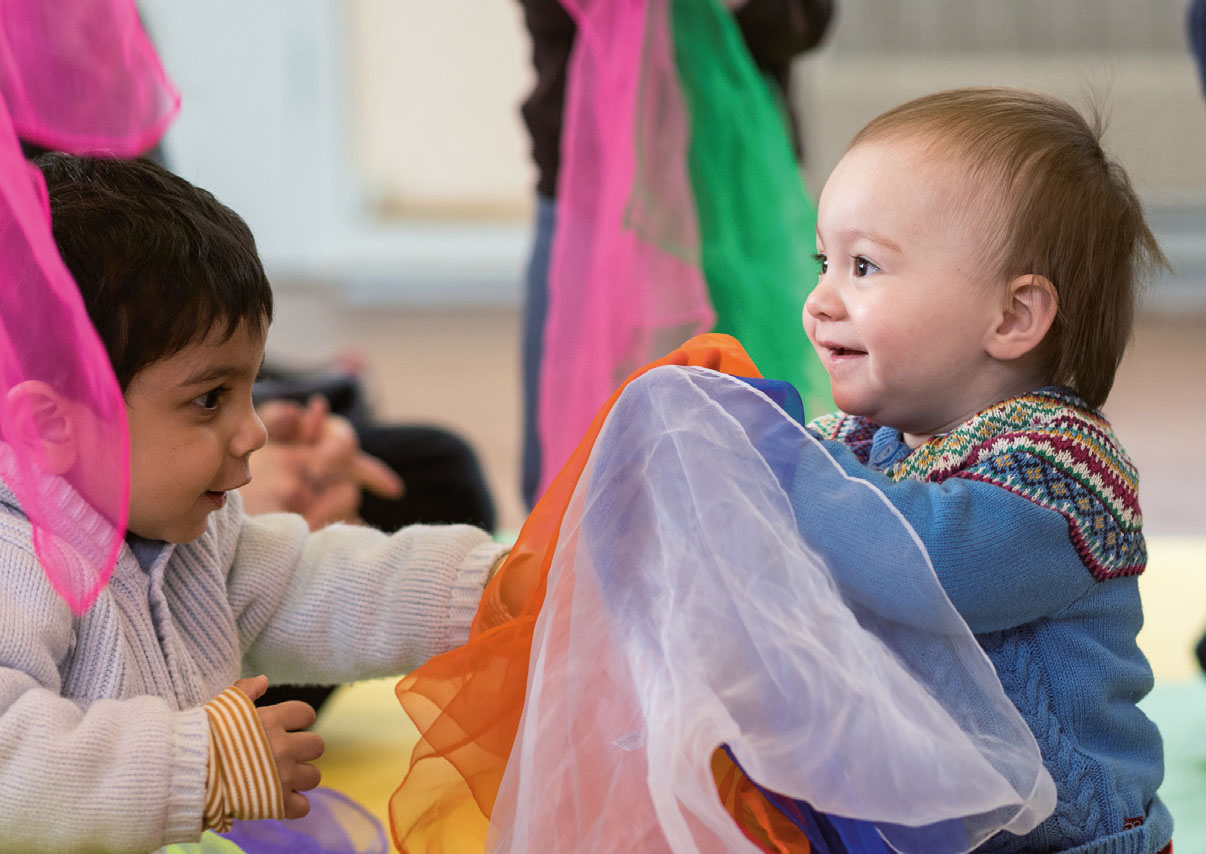 © Bethan Scolding
© Bethan Scolding
This inspired the ukulele strand of our project, where we delivered online ukulele sessions to early years specialists during lockdown in preparation for when they got back to their settings. It was an opportunity for us and the early years practitioner team to work together with an instrument, to talk about some of the more practical elements of making music. This allowed them to gain a body of musical knowledge, which they could combine with their experience and intuition.
ER: How do you reflect on your practice and enhance your workforce development?
BS: We refer to Nicola Burke's excellent Musical Development Matters document and we're lucking that our Children's Centre partners are familiar with that document and committed to growing music in their centres. This shared reference helps us to reflect on our practice together. We deliver our sessions very intuitively and afterwards we journal and note down what we saw and how it compares to different areas of musical development that we would hope to be supporting. From that, we gain awareness and our next session is enriched by this reflection and understanding of what's been happening. We also have early years support workers and practitioners who partake in and observe the sessions. They're coming from a much wider perspective and provide us with valuable feedback. This also enhances workforce development.
Music Development Matters can be downloaded for free.



